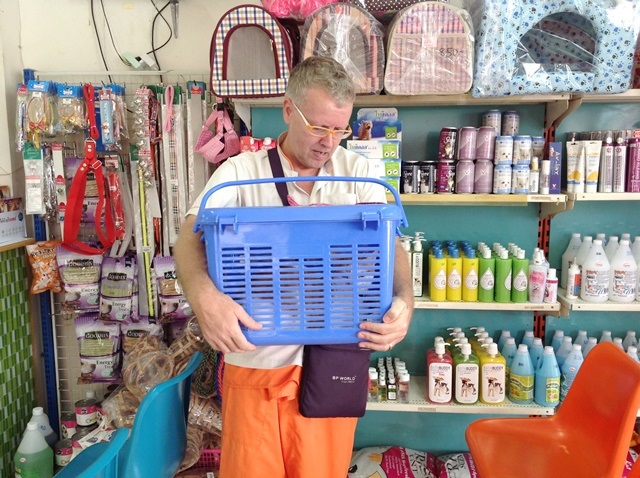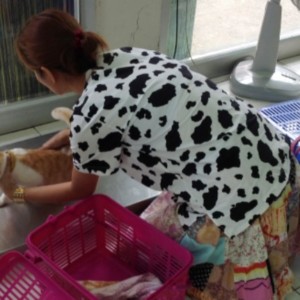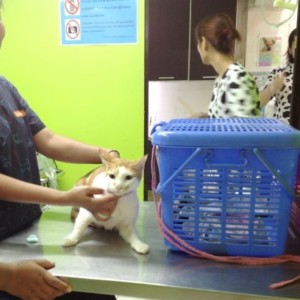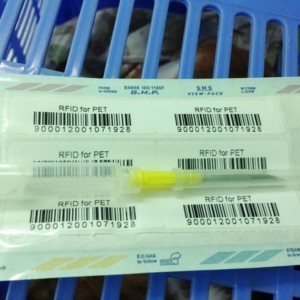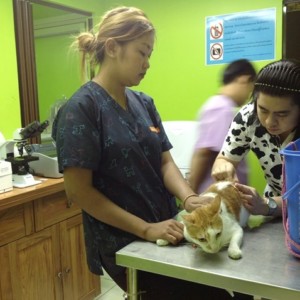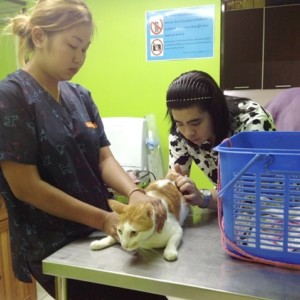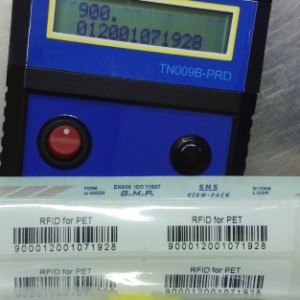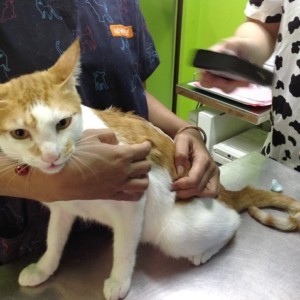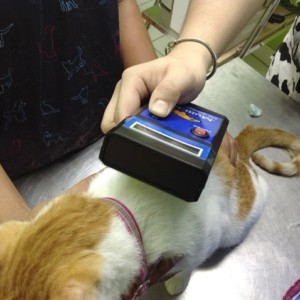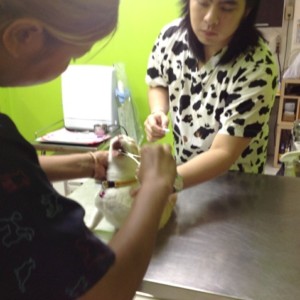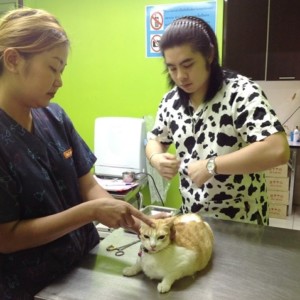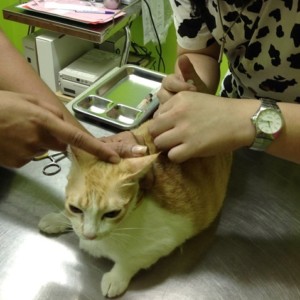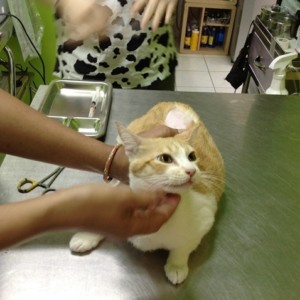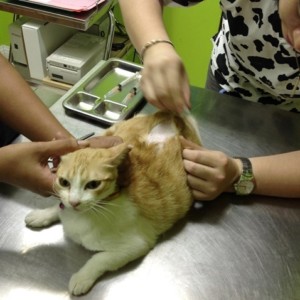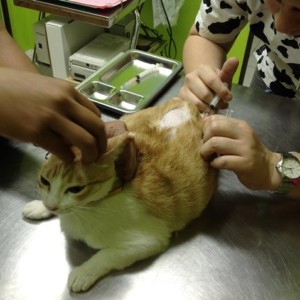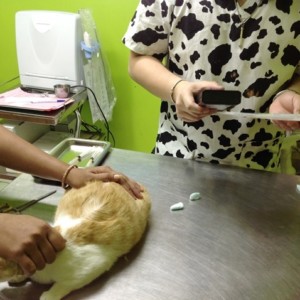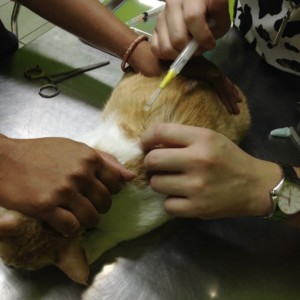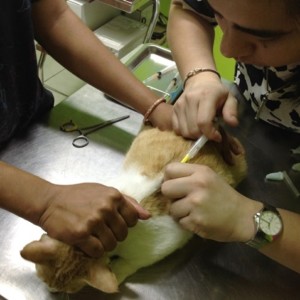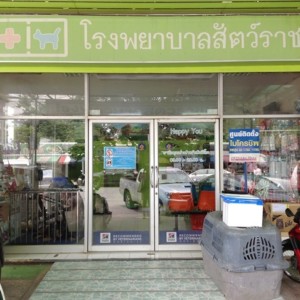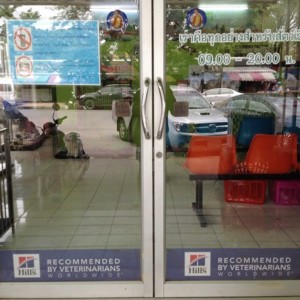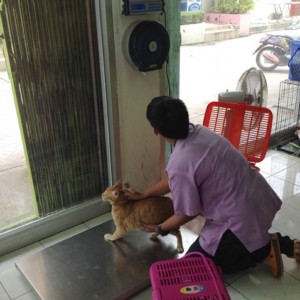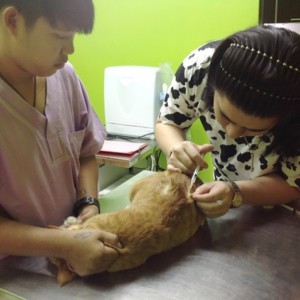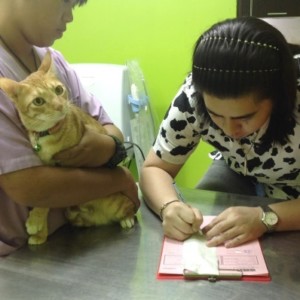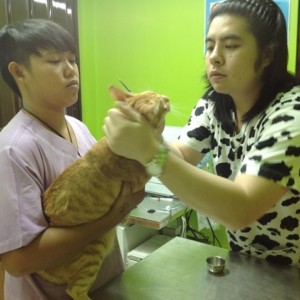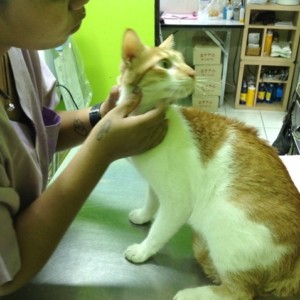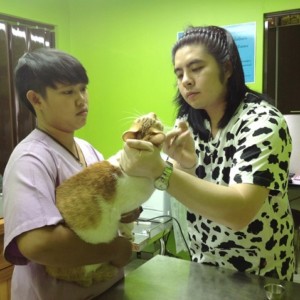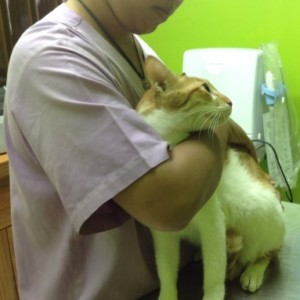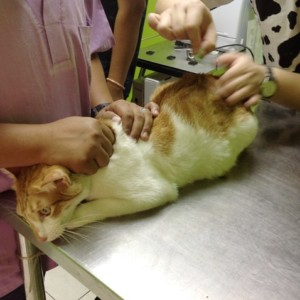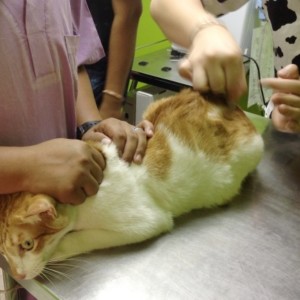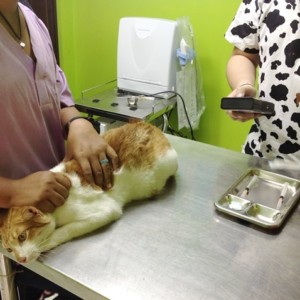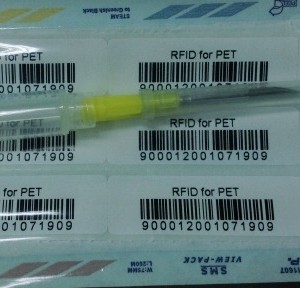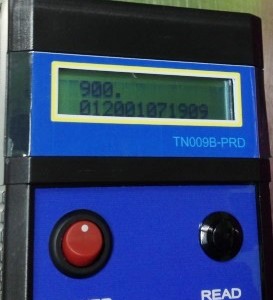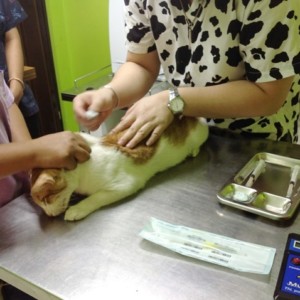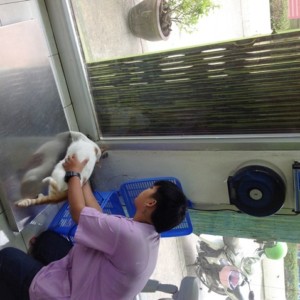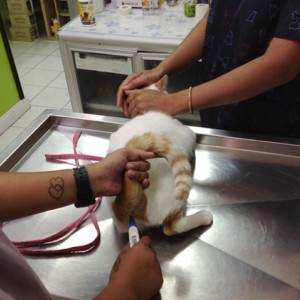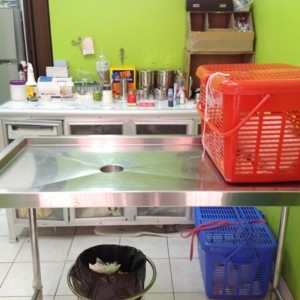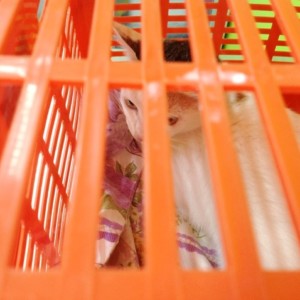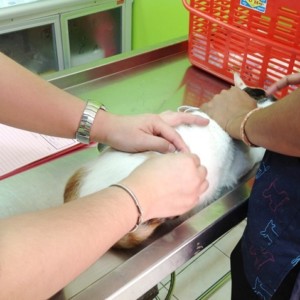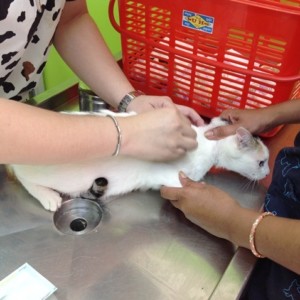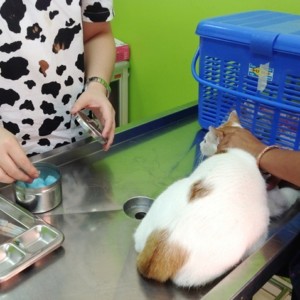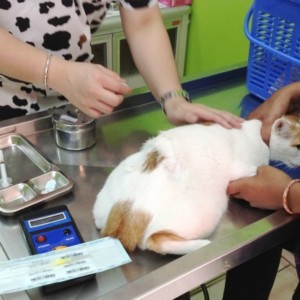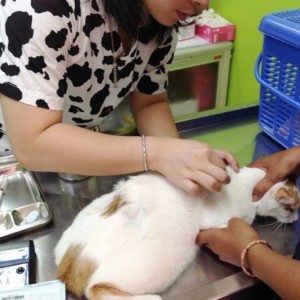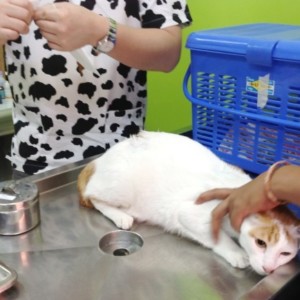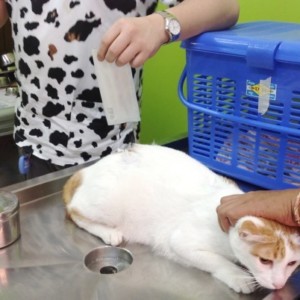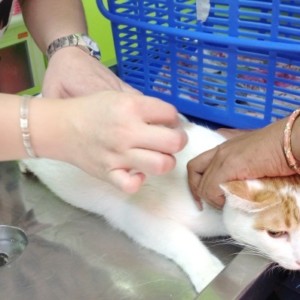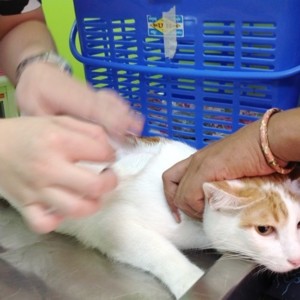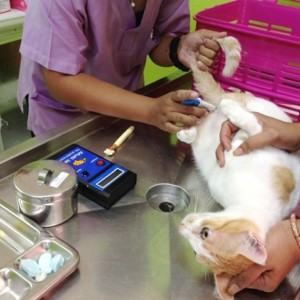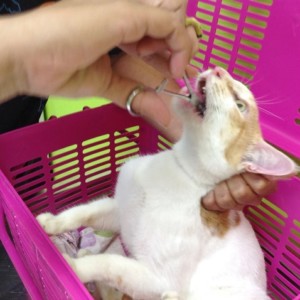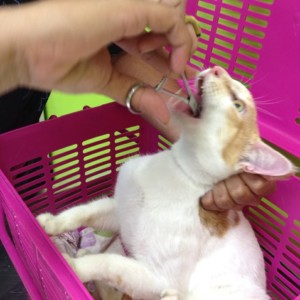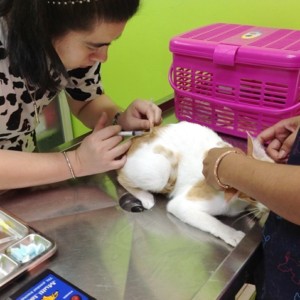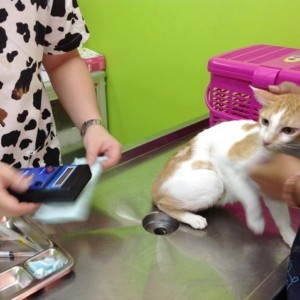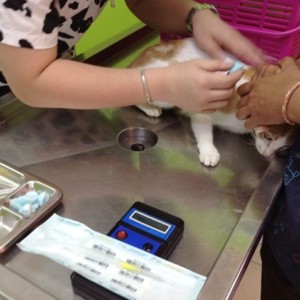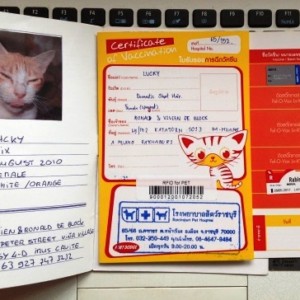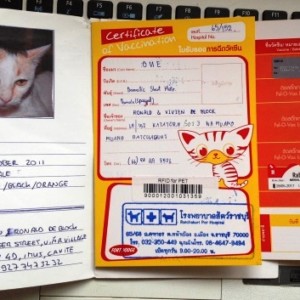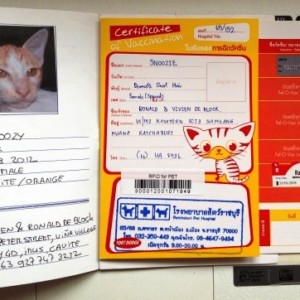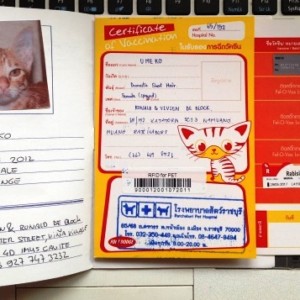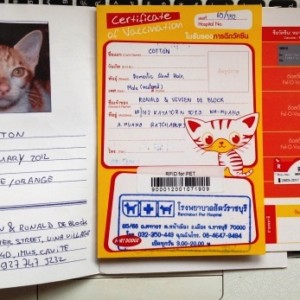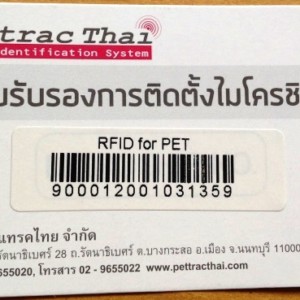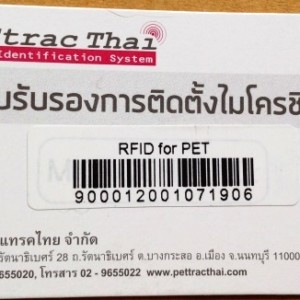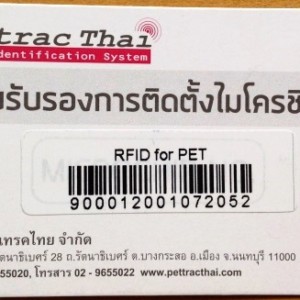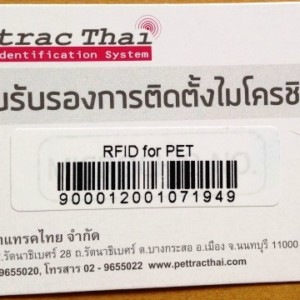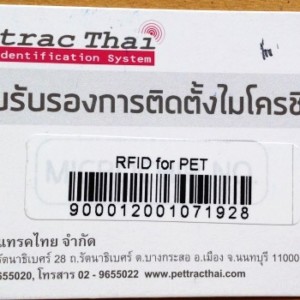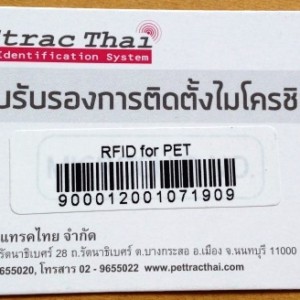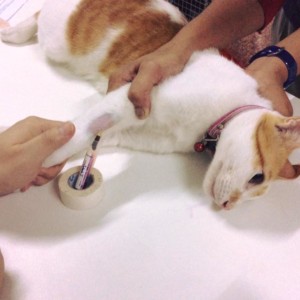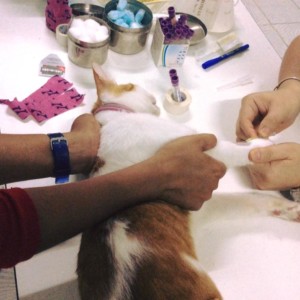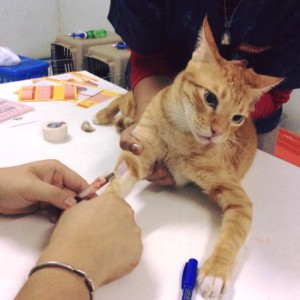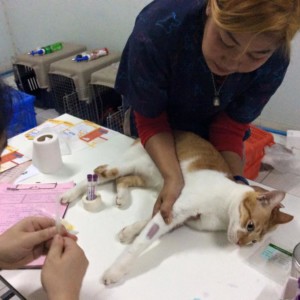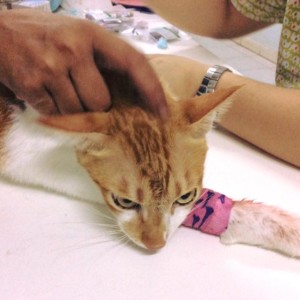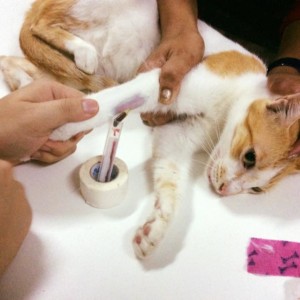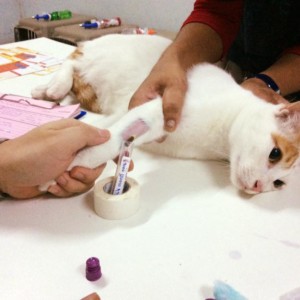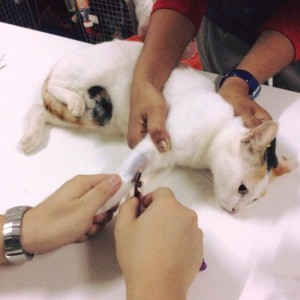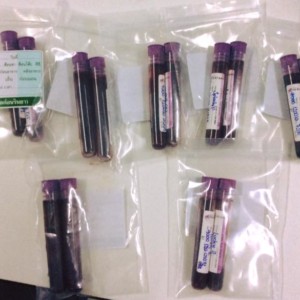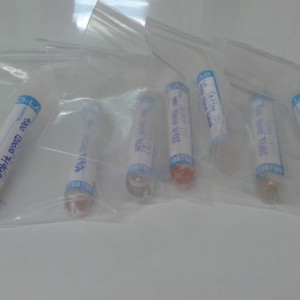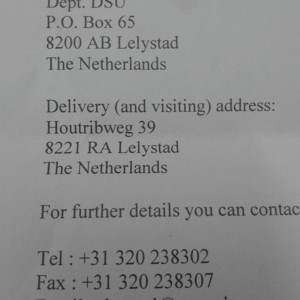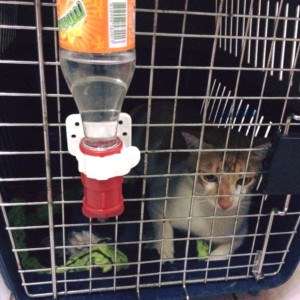Pet Travel: Thailand to Austria
Article first posted : September 9, 2015
Article updated: October 19, 2016
Final update: June 14, 2017
The Traveling Cats – Moving again?
Yes! Cats de Block will be traveling again.
So… After making the decision to move once more, we are faced with this new challenge of how to get all of our furry 7 out of Thailand and off to Europe in a few months. When I wrote this post in late 2015 (last year), our options were Holland, Austria, Germany, Ireland, UK, Spain, Portugal, etc. We chose Spain and my husband Ronald left for Malaga in September 2015. The cats were supposed to follow soon after; however, their trip was cancelled as I had decided to extend my stay in Thailand.
After a brief holiday in Saigon (last week of January 2016), I arrived back in Bangkok to a new job offer which I decided to accept. After a month at my new workplace, I summoned hubby back and he returned to Thailand albeit reluctantly.
As I am updating this post on October 19, 2016, exactly a week after Thailand’s beloved King Bhumidol Adulyadej passed away, Ronald is scheduled to fly to Vienna. The cats will follow. For sure this time.
We have been moving homes and always took our hyper ‘furry creatures’ with us, no matter the cost, no matter how long it took for us to save up for the export-import expenses.
For the move to Vienna, we were able to find and put together information about pet travel or relocation requirements, procedures and costs from various websites and blogs with details applicable to our case.
We now have seven (7) cats left from the eight (8) that traveled with from the Philippines to Cambodia and then to here, Thailand. Sadly, we had lost Dancer at our first Thai home on New Year’s Eve (Dec. 31, 2014). I did go back to BangYai on New Year’s Eve (Dec. 31, 2015) to see if anybody had seen her since her disappearance, but former neighbors said no. (Places of residence with the cats in Thailand from Aug. 2014 to Feb. 2017 include Bang Yai-Nonthaburi, Dindaeng-Bangkok, downtown Ratchaburi, and Taweethong Village-BangBon 3-Bangkok.)
Since we had planned to move to Malaga, Spain before, we were able to secure all import requirements from Europe and in Thailand. So when we decided on Vienna, Austria instead, the cats were all set to leave as well.
Anyway, here is a list of the things we had to get/do. Those marked with ??? means it needs clarification.
AUSTRIA PET IMPORT RULES AND REQUIREMENTS
Austria Pet Passport and Regulations
Unless otherwise stated, the regulations below apply to domestic dogs, cats and ferrets.
1. Pet Microchip
Your pet must first be microchipped with an ISO 11784/11785 pet microchip that is a 15 digit and non-encrypted. If your pet’s microchip is not ISO 11784 compliant, you can bring your own microchip scanner.
A tattoo is an acceptable form of identification as long as it was given prior to July 3, 2011, is clearly visible and your pet’s current rabies vaccination was administered after the tattoo was applied.
2. Vaccinations
If your pet is entering Austria from a rabies-free or rabies-controlled country, it will need a rabies vaccination after the microchip is implanted and more than 21 days prior to entry but not more than the expiration date of the manufacturer of the vaccine. If your dog, cat or ferret has a current rabies vaccination but no microchip, it will have to be vaccinated again after the microchip is implanted and wait 21 days before travel.
Austria does honor the 3 year rabies vaccination for dogs, cats and ferrets entering the country from outside of the EU. When entering Austria from another EU Member State, annual rabies vaccinations maybe required.
Once you have entered Austria, a 21 day waiting period is not required for subsequent visits, provided rabies boosters are kept up to date, and the other entry requirements are met.
3. Rabies Titer Test (Blood Titer Test)
If your pet is entering Austria from a high-rabies country, your pet must be microchipped, then vaccinated for rabies (in that order). After waiting 30 days, a rabies titer test (FAVN) must be administered. Have your veterinarian scan your pet’s microchip prior to the titer test. Samples must be processed at approved laboratories. Assuming test results are within acceptable limits, your pet can enter Austria no sooner than 90 days after the date the blood was drawn and avoid quarantine. This step is not required unless entering Austria from a high-rabies country.
4. Health Certificate (Pet Health Certificate)
Here is where the rules differ and depend on whether or not you or a legal representative of yours is traveling within 5 days of your pet’s transport.
If the owner or a legal representative of the owner is traveling with or within 5 days of the pet, then your pet will travel under non-commercial regulations as follows:
Traveling to Austria from a country outside of the EU:
Regulations in steps 1 and 2 apply. If entering Austria from a high-rabies country, step 3 applies.
A licensed veterinarian must complete the Annex IV form for Austria within 10 days of entry. If your pet is traveling from the United States or Canada, the veterinarian must be accredited by the USDA or CFIA respectively and the Annex IV form must be endorsed by the local USDA (United States) or CFIA (Canada) office. This form is good for transports of 5 or less animals. (see item 5 if you are traveling with more than 5 pets.) The form is good for 4 months of travel within the EU as long as the rabies vaccination documented on it does not expire.
No matter what country you are entering Austria from, you or your representative must sign a Declaration of Non-Commercial Transport stating that your pet’s transport does not involve the sale or transfer of ownership of your pet.
Your pet must enter through an approved Border Inspection Post (BIP) at an international airport in Linz or Vienna. Notice must be given 24 hours prior to arrival.
All dogs, cats and ferrets may enter Austria commercially from a rabies-free or rabies-controlled countries. Dogs, cats and ferrets may only enter Austria commercially from these high-rabies countries and must have a titer test according to step #3 above.
Traveling with more than 5 pets (We split the 7 into 2 flights – 4 in January and 3 in February 2017)
If you are traveling with more than 5 pets that are 6 months or older, unless you are going to a show or competition, your pets must meet the requirements as listed above (Annex I instead of Annex IV form), and have endorsement from the government agency that regulates the import and export of animals. If you are traveling to Austria from another EU country, you will also need to have an Intra Trade Certificate and register the movement on the TRACES system. If you are entering Austria from a non-EU rabies-controlled or rabies-free country, you will need to enter through an approved Border Inspection Post and give 24 hours notice of arrival.
Entering Austria by Air
Pets entering by air from non-EU countries must do so at Border Inspection Posts at international airports in Vienna, Linz, Salzburg, Innsbruck, Graz-Thalerhof and Klagenfurt.
Pets should enter Austria directly or transit through another EU Member State. If your pet transits through a high-rabies country, then a Transit Declaration will be required stating that your pet has had no contact with rabies-carrying animals and remained secured within the airplane or airport.
All domestic dogs and cats must be free of evidence of disease communicable to humans when examined at the port of entry to Austria. If your dog or cat is not in apparent good health, further examination by a licensed veterinarian may be required at your expense.
Pets may arrive in the cabin, as checked baggage or as air cargo.
Puppies and Kittens
Owners importing puppies and kittens less than 12 weeks of age and thus not vaccinated against rabies will need an import permit. Unvaccinated puppies and kittens can only be imported from other EU Member States and the following rabies-controlled countries: Ascension, United Arab Emirates, Antigua and Barbuda, Argentina, Australia, Aruba, Bosnia and Herzegovina, Barbados, Bahrain, Bermuda, Bonaire, St. Eustace and Saba (the Caribbean Netherlands), Belarus, Canada, Chile, Curaçao, Fiji Falkland Islands , Hong Kong, Jamaica, Japan, St. Kitts and Nevis, Cayman Islands, St. Lucia, Montserrat, The former Yugoslav Republic of Macedonia, Mauritius, Mexico, Malaysia, New Caledonia, New Zealand, French Polynesia, St. Pierre and Miquelon, Russia, Singapore, St. Helena, Sint Maarten, Trinidad and Tobago, Taiwan, United States of America (including American Samoa, Guam, Northern Mariana Islands, Puerto Rico and US Virgin Islands), St. Vincent and the Grenadines, British Virgin Islands, Vanuatu, Wallis and Futuna
Microchips and rabies vaccinations must not be administered prior to 12 weeks of age and there is a 21 day wait for puppies and kittens over 3 months of age arriving from EU Member States or rabies-controlled countries. The minimum age for entering Austria from high-rabies countries is 7 months of age.
—————————————————————————————————
My notes:
1. Microchip – OK
Each cat must be marked by the implantation of a transponder that complies with ISO Standard 11784 or Annex A to ISO standard 11785. Austria currently accepts AVID 9 and AVID 10 in addition to ISO. The microchip must be implanted before the rabies vaccine is administered.
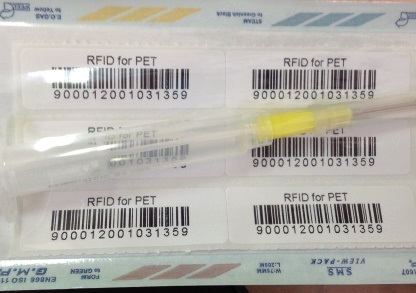
2. Rabies Vaccination and Certificate – OK
All our cats must be vaccinated against rabies by an authorized veterinarian and must each have an original Rabies Certificate signed by the vet. The Rabies vaccine must be at least 21 days old at the time of the final health exam.
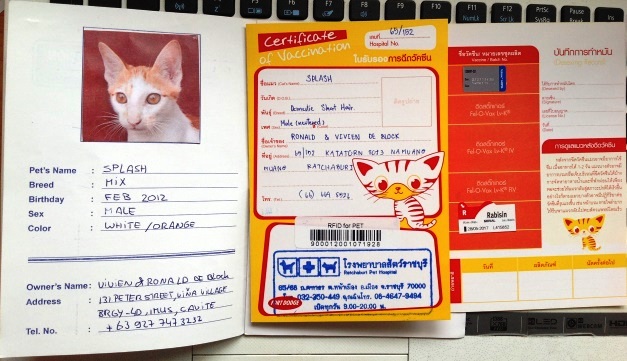
Note: Pet must be at least 12 weeks old at the date the vaccine was administered. The date of vaccination should not precede the date of marking or reading of the transponder/microchip.
The period of validity of the vaccination starts not less than 21 days from the completion of the vaccination protocol for the primary vaccination.
3. Other Vaccinations – OK
It is suggested that all of the cats receive full vaccinations which should be valid at the time of import and administered no less than two weeks before departure date for maximum effectiveness.– DONE (Thanks to Ratchaburi Vet Clinic near TESCO.)
- Feline Viral Rhinotracheitis
- Calicivirus
- Panleukopenia (FVRCP)
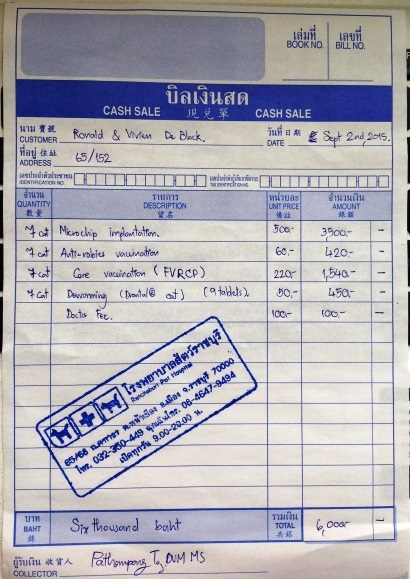
Photos taken during microchipping and the bulk of the vaccination phase.
You may click on an image to enlarge.
4. Rabies Antibody Titration Test – PASSED
(Done by the authorized laboratory in Holland)
The test must:
- – be carried out on a sample collected by an authorized veterinarian at least 30 days after the date of vaccination and not less than three months before the date of movement
- – measure a level of neutralizing antibody to rabies virus in serum equal to or greater than 0.5 IU/ml
- – be performed in an approved laboratory

Photos taken during extraction of blood samples.
You may click on an image to enlarge.
5. EU Health Certificate – OK
Make sure that each vaccination stamp is signed by the Vet with his/her license number.)
Each cat must be accompanied by an animal health certificate. This is the standard Health Certificate to be completed and issued by an official veterinarian, or by an authorized veterinarian and subsequently endorsed by the competent authority (must be signed in a different color than that of the certificate’s printing, usually blue ink).
This certificate is valid for 10 days from the date of issue until the date of the checks at the EU point of entry.
5. USDA Endorsements for the Following Forms
Must be if your pets are traveling from the US/Canada
- Microchip Implantation Record
- Rabies Certificate
- Vet Letter
- EU Vet Health Certificate
These must be sent to your local USDA for their stamp of approval. (Find out more from pet relocation handlers to learn more about best way of handling this.)
6. International Health Certificate
We did not have to produce this, although there were sets of documents prepared by the cargo company that were in Thai before and after our appointments at the Quarantine Office at Suvarnabhumi Airport.)
This is an international health certificate that needs to be completed by your vet within 10 days of departure. Depending on the logistics of your particular pet relocation and the specific health certificate being used (APHIS Form 7001) an additional USDA Endorsement maybe required on this health certificate.
7. All original documentation listed above must travel with the pets.
C/o Dynamic Cargo Company
8. Pet Owner’s Passport
9. Book the flight. – we enlisted the help of Dynamic Air Cargo. They have an office at the airport. No hassle, no trouble for us trying to read through many documents written in Thai.
EXCEPTIONS
*Regarding the number of pet animals – Where more than five (5) pets are moved and the conditions to derogate are not met, the animals are to comply with the animal health conditions applicable to imports into the Union.
More updates on The Traveling Cats Facebook Page
Reference:
Final Update:
On January 16, 2017, four of our cats arrived in Vienna via Austrian Airlines – Aiko, Cotton, Splash, and Umeko. Then in February 10, 2017, my beloved husband Ronald celebrated his birthday with the arrival of Lucky, Oue and Snoozie. All of our traveling cats are now residing in Austria as of this post update.
Photos (first four cats’ departure and arrival) – please click here or go to https://www.facebook.com/luckyoueaikoumekocottonsplashsnooziedancer/photos/?tab=album&album_id=1814540858806363
Photos (second batch) – please click here or go to https://www.facebook.com/luckyoueaikoumekocottonsplashsnooziedancer/photos/?tab=album&album_id=1826894580904324
By: Vi / 14th June 2017
animal health certificate, anti rabies vaccination, blood titer test, bringing cats to europe, cat microchip, cat passport, cat relocation, cats, cats go to spain from thailand, eu health certitificate, kitty, move cats to europe, moving cats, moving cats from asia to europe, moving cats from thailand to spain, moving pets, moving pets from Thailand to Spain, moving with pets, pet export, pet health certificate, pet import, pet microchip, pet passport, pet relocation, pet vaccination, Rabies Antibody Titration Test, rabies certificate, ratchaburi pet clinic, relocating cats to europe from asia, requirements for pet relocation, SPAIN PET IMPORT RULES AND REQUIREMENTS, thai vet, The Traveling Cats, traveling cats, traveling pets, traveling with pets, vet, vet in ratchaburi, veterinary
